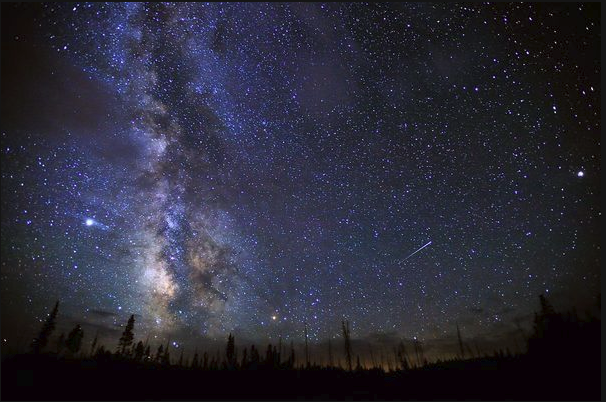 A simple argument of His existence. Once a clever person asked an illiterate Bedouin, “How do you know that Allah ﷻ exists?” The Bedouin pointed his finger towards a camel's dung on the sand and asked that man “What is that?” The man replied “a camels dung” The Bedouin then replied, “If that dung is a proof of camels existence then this entire universe is a proof that Allah exists." There is a possible divine reason why some people do not believe in the existence of a Creator. In a hadith-e-qudsi Prophet ﷺ narrated to us from Allah: ﷻ “I am as My servant thinks about Me, and I am with him as he remembers Me. And if he remembers Me in his heart, I also remember him in My Heart”.[1] One of the leading Islamic scholar Sheikh Hamza Yusuf says that ‘I am as my servant thinks about Me’ teaches us that He is as we humans perceive Him, which means if we perceive Him to be in existence then indeed He will be in our hearts and close to us and that is the perception of a believer. However, if those who believe Him to be nonexistent then for them He will not exist! Those who forget Allah ﷻ and do not believe in His existence, then Allah ﷻ makes them forget about Him and themselves: “who are oblivious of God, and whom He therefore causes to be oblivious of their own selves.”[2] This being as a result of the natural law of cause and effect that Allah ﷻ has decreed which comes in to play based on the use of our God given free-will, and not predestination. References: [1] Sahih Muslim - Kitab Az Zikr [2] Al Quran 59:19 – Asad Translation.
1 Comment
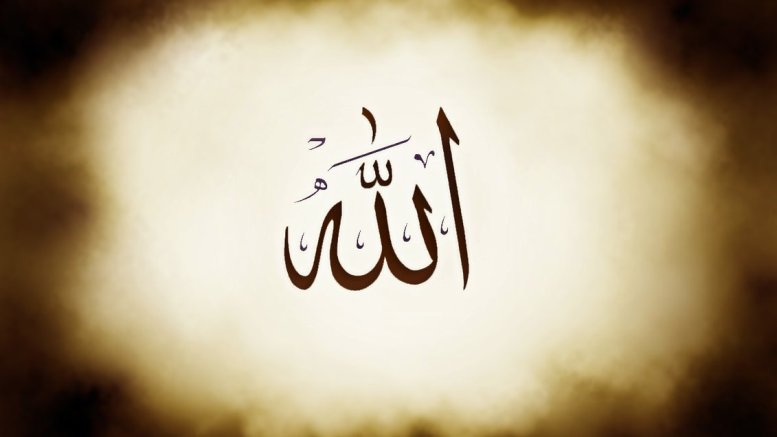 Can Allah ﷻ reveal himself? The famous early Muslim Imam and mystic Jafar Sadiq (alaihi salaam) (CE 702–765) was once asked by someone “can I see Allah ﷻ?” The Imam told the man to look at the intense bright sun. As soon as the man looked he immediately withdrew his sight due to the intensity. Seeing this the Imam replied, “If you cannot see the creation, how can you see the Creator?”[1] So why Allah ﷻ cannot be seen? The Prophet ﷺ mentioned to us something about Allah ﷻ: “His hijab (veil) is light, and if He were to remove it, the glory of His Being would burn everything of His creation, as far as His gaze reaches.”[2] What the Prophet ﷺ said about His veil being light is also confirmed in the Quran where Allah ﷻ says: “Allah is the Light of the heavens and the earth.”[3] The demand to see Allah ﷻ was made by Prophet Musa (Moses) (alaihi salaam) which Allah ﷻ did accept and unveiled His covering to reveal a tiny portion of His tajjalli[4] to a huge mountain: “And as soon as his Lord unveiled His glory to the mount, He crushed it into fine dust.”[5] Mind you over here Musa (alaihi salaam) demand was not due to lack of faith in the existence of Allah ﷻ, it was only due to his demand to confirm the impossibility of Allah’s vision in earthly existence. If Allah ﷻ were to truly appear before His creation on earth before judgment day, everything will turn to dust. It is due to this reason Allah ﷻ says: “No human vision can encompass Him, whereas He encompasses all human vision: for He alone is unfathomable, allaware.”[6] The only one to have seen Allah ﷻ while being a resident of earth was none other than the leader of humankind, leader of all Prophets and Messengers, Prophet Muhammad ﷺ. However even he was able to do so only when he traveled to the heavens during the Isra Wa’al Mira’aj[7] event and not on earth. And this meeting and vision that he was given was a special gift from Allah ﷻ for him. Some may ask that since Prophet Muhammad ﷺ had the special privilege to see Allah ﷻ then in what form did Allah ﷻ reveal himself to him? Prophet Muhammad's vision of Allah ﷻ has also been subject to debate since the time of Companions such as Ayesha (r.a), who claimed that he did not see while Abdullah ibn Abbas (r.a) and others suggested that he did. For those like myself who do believe that indeed Allah ﷻ revealed Himself to the Prophet ﷺ do not ask how or what was it that he saw, we do not ask specific questions because this vision can only be understood through individual experience and not mere words. According to the Islamic teachings paradise and many things in it and experiences of the hereafter are indescribable, then how can the One Who created them be describable? Narrated Abu Hurairah (r.a) that the Prophet ﷺ said: "Allah Most High said: 'I have prepared for My righteous worshipers what no eye has seen, no ear has heard, and no human heart has conceived.'" And that is testified to in Allah's [the Mighty and Sublime] Book: No person knows what is kept hidden for them of delights of the eyes (Al Quran 32:17)[8] Since Allah ﷻ Himself testifies that based on our earthly life its almost impossible for us to even imagine the many types of pleasures and indescribable things in the hereafter then how can we even describe the form or even discuss of how or what when it comes to Allah ﷻ, Who created them. As one of the Saints mentioned beautifully that nothing of this world can be compared with that of hereafter except through words. Words can never express the reality just as the Prophet ﷺ said “Information is not the same as observation.”[9] The actual experience and meaning of whats in the hereafter remain beyond the comprehension of majority humankind and their discussions in this worldly life cannot help us have true realization. Therefore the best way to deal with this question if it occurs to our mind is to have patience and experience it yourself in the hereafter. Know that this experience of the vision of Allah ﷻ is one of the best rewards that the believers will have on the day of judgment and this is confirmed by a narration of the Prophet ﷺ who said “When the people of Paradise enter the Paradise, Allah will say,`Do you want me to give you anything extra' They will say, `Haven't you whitened our faces Haven't you entered us into Paradise and saved us from the Fire' Then He will remove the veil and they will not be given anything more beloved to them than looking at their Lord, and that will be the extra (Ziyadah).”[10] The best reward can always be best if remain hidden and not exposed. References: [1] Heard in one of the Islamic khutbahs (lectures). [2] Sahih Muslim - Vol. 1, Book 1, Hadith 196 [3] Al Quran 24:35 [4] A very small ray of His glorious self. [5] Al Quran 7:143 [6] Al Quran 6:103 – Asad Translation. [7] Night Journey & Ascension was a highly significant event in which the Prophet journeyed through the heavens and to Jerusalem in one night. Historically there has been a scholarly disagreement from the time of the companions if he had a vision of Allah ﷻ or no. [8] Jami Tirmidhi Vol. 5, Book 44, Hadith 3197 - Sunnah.com https://sunnah.com/urn/642270 [9] ( Recorded in Ahmad) - Tafsir ibn Kathir - Surah Al Araaf (Chapter 7) Ayah 150 - 151 [10] Seeing Allah in the Hereafter - Tafsir of Imam Ibn Kathir 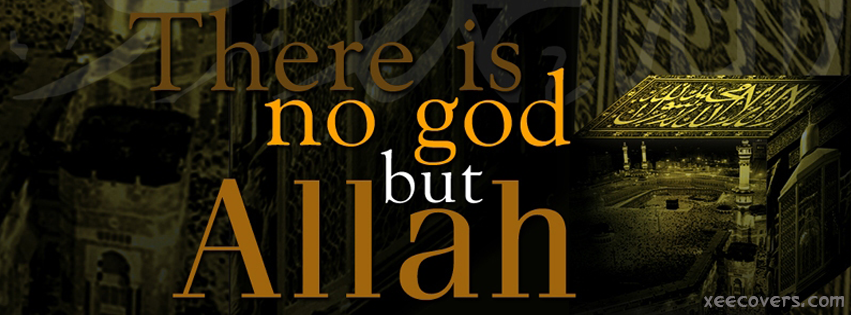 Difference between the term Allah and the word 'God' Allah ﷻ means God but is not exactly the same. One can play with the English word ‘god’ which cannot be done with the Arabic term Allah. You can add apostrophe ‘s’ to make plural ‘gods’ or ‘ess’ to make a female ‘goddess’ or ‘father’, ‘mother’, to make it ‘godfather’ or ‘godmother’. This proves there is much potential for corruption in the English word God, we can twist it as we wish. However, this is not possible with Allah ﷻ in Arabic. Firstly, the term Allah is a combination of two words al, which means ‘the’, and ilah, which means ‘God’, these two letters combined mean ‘The God’. This tells us He is not just God, He is in fact ‘The God’ meaning one and only. Additionally the term Allah cannot be played with by adding Arabic alphabets which maintains its uniqueness. The Arabic term Allah consists of four letters: Alif, Lam, Lam, Ha. What’s even more amazing that if we tried separating each letter of this term then it becomes more meaningful in explaining the concept of One True God: If we subtract the first letter Alif, we are left with remaining two: Lam Lam Ha, pronounced as Lillah, which means Everything Belongs to Allah. If we only subtract first Lam without Alif then it becomes ilah which means God. If we subtract the Alif and second letter Lam, we are left with two: Lam Ha, pronounced as Lahu, which means Everything to Him. If we subtract the second Lam as well, then we are left with only Ha pronounced as Hu, which means The One Whose identity is hidden and no one knows but Him. No matter what letter you take out, the essence of Allah ﷻ remains. All Praise is due to Allah ﷻ, the Lord of the entire creation! This is one of the many miracles of the term Allah. The scholars of Islam carrying expertise in classical Arabic share many such miracles of this term. All Praise is due to Allah ﷻ, the Lord of the entire creation! This should help us realize that one truly seeking a bond with their Creator should approach Him through that path that protects the purity of His concept and name. 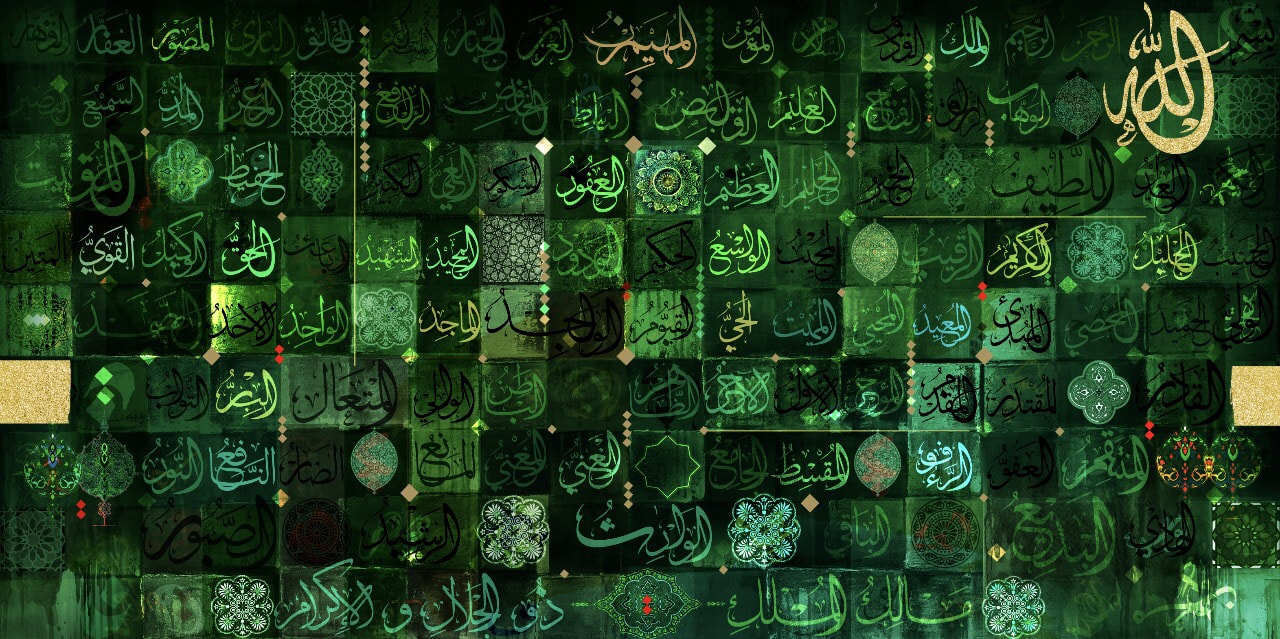 Why are the Divine Names of Allah ﷻ important? The 99 divine names of Allah ﷻ are highly important in Islam. If one observes the religious history of humankind, we may notice that ancient civilizations such as Hindu, Greek, Roman, and Egyptian influenced by paganism, had some sort of association with a god or goddesses for all sorts of their needs, in times of trouble and happiness. There was a god for luck, god for rain, god for wind, god that controlled fire, another one that ruled over the stars and then there was one that ruled over mountains. There was a god for life and a god for death. This inner natural tendency within humans to seek help from a power greater than their own in matters pertaining to their individual and collective needs is what shaped the concepts of paganism in humankind’s religious history. In order to prevent people’s thoughts from seeking plurality in their assistance from a higher power which corrupts the purity of concept of One Power, Allah ﷻ always send Prophets to correct people’s beliefs and to remind them that they should seek all assistance and help from The One, rather than forming mythological beliefs and dividing the authority of a supreme power. The pagans once taunted the Prophet ﷺ when he was invoking two of Allah’s beautiful divine names or attributes called Ar-Rahman (Most Gracious) and Ar-Raheem (Most Merciful), thinking that he was invoking other gods with Allah ﷻ: One of the idolaters heard the Prophet ﷺ saying when he was prostrating: "O Most Gracious, O Most Merciful." The idolater said "he claims to pray to One, but he is praying to two!" Then Allah revealed the following verse: "(Al Quran 17:110) Say (O Prophet): Invoke Allah or invoke Ar-Rahman (Most Gracious), by whatever name you invoke Him (it is the same), for to Him belong the Most Beautiful Names.”[1] This incident was to teach the pagans and entire humankind to seek assistance from the One who controls all, such as your destiny, your rewards and blessings, your sustenance in this world and in the hereafter, your forgiveness and protection in this life and in the afterlife. The One Who is generous, kind, seek help of the One who controls life, death and everything, so worship Him alone with no association whatsoever. In order to keep the concept of One Deity pure it makes perfect sense that Allah ﷻ taught us His various divine names with which we seek His assistance for each need and place our complete trust in Him rather than any other living or non-living entity. For something special we will make dua (supplication) and invoke the name Al-Wahhab (The Generous Giver), for seeking forgiveness for our sins and mistakes, we invoke Al-Ghafoor (The Forgiving), for something we are in need of we invoke through His grace and mercy reciting names such as Ar-Rahman (Most Gracious) and Ar-Raheem (Most Merciful) and so on. The 99 divine names of Allah ﷻ are found throughout the Quran. One instance where couple of them are mentioned together is in Surah Al Hashr, the 59 chapter of the Quran: “He is the Lord of Mercy (Al Rahman), the Giver of Mercy (Al Raheem). He is God: there is no god other than Him, the Controller (Al Malik), the Holy One (Al Qudoos), Source of Peace (As Salaam), Granter of Security (Al Mumin), Guardian over all (Al Muhaymin), the Almighty (Al Azeez), the Compeller (Al Jabbar), the Truly Great (Al Mutakabbir); He is Allah, The Creator (Al Khaliq), The Initiator (Al Bari), The Supreme Fashioner (Al Musawwir). To Him (belong) the Fairest Names. Whatever is in the heavens and the earth extols to Him, and He is The Ever-Mighty (Al Azeez), The Ever-Wise (Al Hakeem).”[2] References: [1] Surah Isra - I. I. Kathir 2003 [2] Al Quran 59:22-24 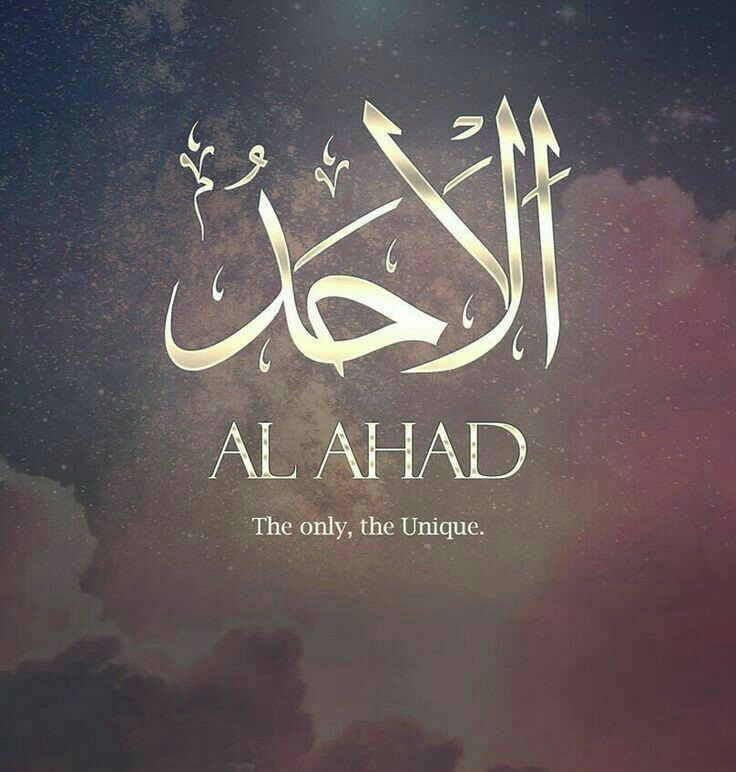 Our attitude on describing Allah ﷻ Allah ﷻ is not described in any verses of the Quran or ahadith. There is no physical description of Allah ﷻ because discussing His description is contrary to Islamic faith. The Quran makes it clear “There is not anything like Him (whatsoever)”[1], meaning that nothing in the entire creation that could be compared to Him. As per Islam, the moment we compare creation with the Creator, He ceases to be the Creator because His uniqueness is what makes Him worthy of being called our Creator. The moment we attempt to compare Allah ﷻ with His creation in any way, we will be claiming something for which we have no direct proof from Him and this is a sin. This is obviously due to the understanding that "there is nothing like Him". However, what we find mentioned in the Quran and ahadith are His actions. When addressing humankind, actions of Allah ﷻ can be best understood using words that employ the same terms when describing human actions as that helps us to better comprehend. Similarly, one may find many actions of Allah ﷻ in the Quran and the ahadith related to human actions but they are not to be understood literally but neither can their literal interpretation be denied. Our attitude towards this matter is that we accept them as they are without inquiring "how" or "why". Please also read another post that explains how a believer's attitude should be on this matter: Understanding His Human Like Actions References: [1] Al Quran 42:11 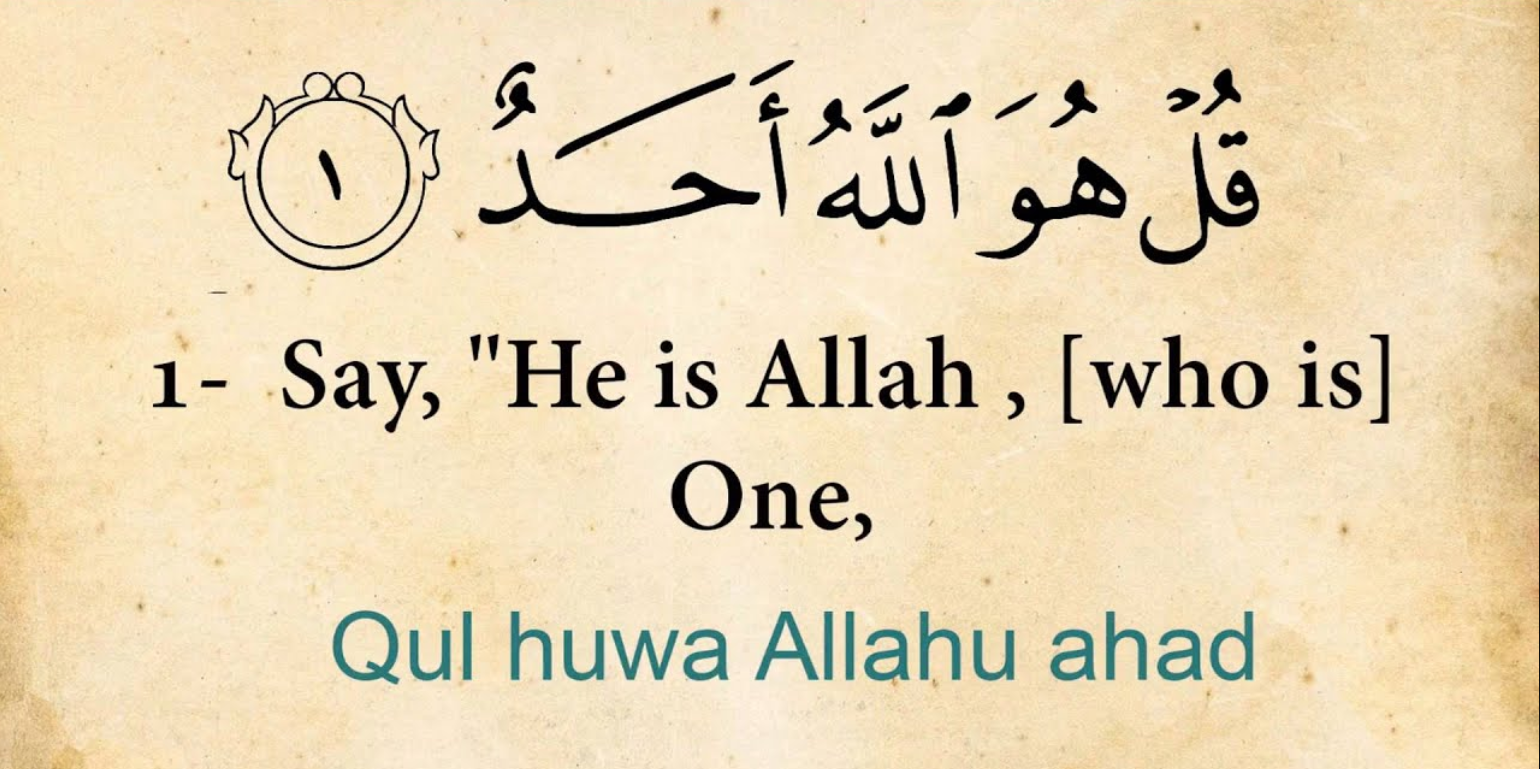 How Islam corrected the world’s perspective about God The Concept of God is the root of every religion in humankind’s history and once this concept gets corrupted then pretty much everything else as well in that religion becomes prone to corruption. What makes Islam unique in this matter is that the concept of God has always remained free from corruption. Allah ﷻ, as He refers to Himself in the Quran, willed this to remain free of corruption so humankind will always have the authentic way to approach Him and not be lost until the Day of Judgment. The pagans of Quraysh[1] asked the Prophet ﷺ: “Oh Muhammad, tell us about the ancestry of your Lord”[2] i.e. a demand to explain concept of Allah ﷻ. The reply to them came from Allah ﷻ through revelation of a chapter in the Quran called Surah Ikhlaas (112 Chapter). Ikhlaas means ‘The Purity of Faith’. This Surah consists of only four verses yet within these four it is quite explanatory how important it is to maintain purity of this concept and how no corruption of any sort can come close to it. Prophet Muhammad ﷺ referred to these four verses as “1/3rd of the Quran”[3] because it affirms the concept of Tawhid[4] (Oneness) due to which Muslims believe that worship and obedience is due only to Creator and not the creation. Under the light of this Surah, anyone claiming to be a god or alleged by people to be a god can easily be tested. Only, a true God can fit in the description of these verses as we analyze each: First verse: (Al Quran 112:1) Say “He is the One God” Meaning there cannot be a second, because if there is another one then there will occur dispute as in regards to power sharing, as goes a famous saying that ‘two kings cannot occupy one throne’. The example of this saying is also found in the Quran: “Had there been any gods in the heavens and the earth apart from Allah, the order of both the heavens and the earth would have gone to ruins. Glory be to Allah, the Lord of the Throne, Who is far above their false descriptions of Him.”[5] Second verse says: (Al Quran 112:2) “God the Eternal, the Uncaused Cause of all that Exists.” If God existed from a particular period, then He cannot be God, because God is someone who is above space and time. He is someone who created space and time, as everything else we observe is transient due to its existence in space and time. Our entire universe with its galaxies and cosmic bodies including the solar systems and planets are transient as they all have a history of existence and non-existence. Therefore, if He existed from a certain point in time then He cannot truly be God as that would bring up the question ‘who created God?’, if no one did then ‘how did He originate Himself?’ Therefore, a true God is one who is not created, one who is Eternal and only He can be considered the Almighty Creator who created everything else. He is the primary cause of all that exists. Since He is the primary cause of everything then He must truly be Uncaused: “All that lives on Earth or in the Heavens is bound to pass away but forever will abide your Sustainer Self, full of majesty and glory.”[6] Third verse says: (Al Quran 112:3) ”He begets not neither is He Begotten”. The Arabic term Allah is neither male nor female i.e. gender cannot be assigned to Him. Gender assignments belong only to His creation. If He has a son then He cannot be unique and if He has a father then He is not Eternal, and both do not fit in the Islamic definition of God. God is someone who can neither have likeness nor can He exist from a point in time, He has no beginning and He has no end. Likewise Allah ﷻ warns those misguided who ascribe a gender to Him that He cannot have a gender because there is polarity in all creation except for Himself, the Originator (Al Badi'i)[7]: “The Originator of the heavens and the earth! How could it be that He should have a child without there ever having been a mate for Him – since it is He who has created everything, and He alone knows everything?”[8] The fourth verse says: (Al Quran 112:4) “and there is nothing that could be compared with Him.” Firstly when referring to Allah ﷻ as ‘Him’ or ‘He’ does not mean that He is masculine. In classical Arabic, the pronoun for genderless inanimate or animate objects is masculine. Secondly the moment we compare anything in the entire universe with God, then He ceases to be God. Creator creates the creation and is above all creation! For God can only be someone unique and cannot resemble anything or anyone. Therefore, with the end of the last verse, this is the concept of God in Islam available in all its purity. References: [1] The tribe of Prophet Muhammad ﷺ that ruled Makkah. [2] Surah Al Isra (Chapter 17) - Kathir 2003 [3] Sunan an-Nasai 996 [4] Tawhid means the oneness and uniqueness of Allah ﷻ which makes Him worthy of being the only God and the only one worthy of being worshiped. [5] Al Quran 21:22 [6] Al Quran 55:26-27 - Asad Translation. [7] The Originator - One of the 99 beautiful names and attributes of Allah ﷻ. Also referred as His qualities or characteristics. [8] Al Quran 6:101 – Asad Translation. 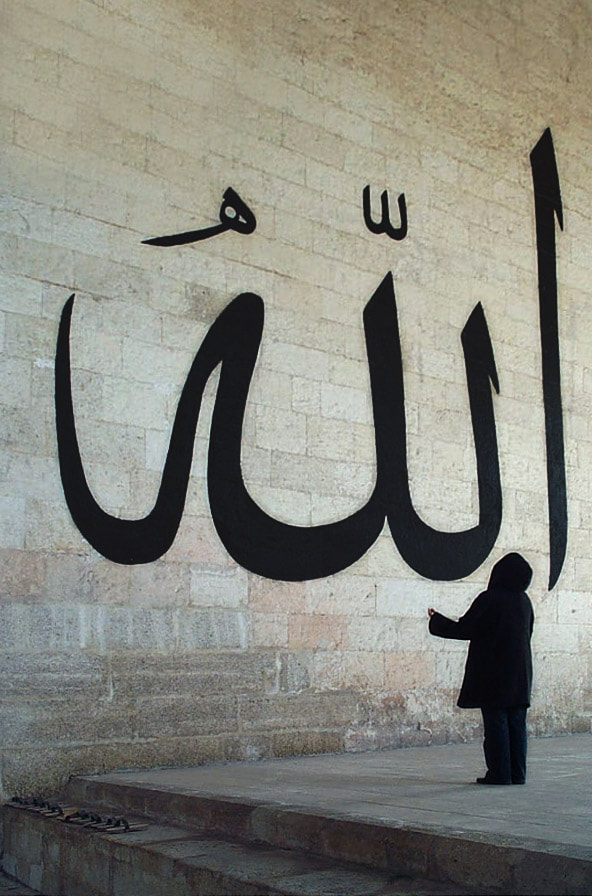 Countering anthropomorphic (human like) view of Allah ﷻ Firstly, we Muslims are not supposed to ask how and why of Allah’s actions, we accept His actions in the Quran as they are and do not inquire anything more. The ultimate reality of His actions is only something He knows best. The earliest generations of Muslims called the salaf[1], did not pose such questions about Allah ﷻ and accepted His actions in the Quran as they are. Such questions arose in the minds of the upcoming Muslim generations causing fitnah[2] (confusion) and the scholars had to gear up to answer them otherwise there was a fear of Muslims creating an anthropomorphist (human resemblance) view of Allah ﷻ in their minds. To prevent such views to take root in the minds of the Muslims the scholars attempted to interpret actions of Allah ﷻ so that they can be understood correctly. For instance the following verse has been usually the center topic of such debates from medieval times which claims that Allah ﷻ occupies a throne: (Al Quran 20:05) Al Rahmanu ala’l arshi istawa - The Most Merciful [who is] above the Throne established. What I have learned from the scholars is that in this verse the establishment of the throne is not to be understood literally. Literalism should not be applied when understanding the actions of Allah ﷻ as that is what leads us to create a human image of Allah ﷻ in our minds which is forbidden due to the fact that Quran says: “There is not anything like Him (whatsoever).”[3] There has been a difference in understanding such actions of Allah ﷻ by various scholars of Islam for the past almost fifteen centuries. The majority school i.e. the scholars of Ahle Sunnah Wa’al Jama’ah (people of the way and consensus) i.e. majority Muslims have usually understood these actions in a figurative manner and explained them as opposed to a literalist manner. Since Quran is in classical Arabic there is much figurative speech involved in the language therefore many verses related to Allah’s actions such as the act of 'occupying the throne', need to be understood keeping the language in mind. The words ala’l arshi istawa meaning "establishing over the throne" or "occupying the throne" is to be understood in the same manner as we understand figurative speech in the sentence "the president’s seat got toppled" where it’s not the actual seat that got toppled but it is his power that is lost which means he is the president no more. In another instance there is a hadith of Prophet ﷺ where he said: “The Muslim is he who the Muslims are safe from his tongue and his hand.” Over here the "hand" that the he is referring to is not only the literal hand but also means that they are safe from any sort of his 'power' and 'influence' to harm others. Similar to this when Quran says He is "occupying the throne’" it is to be understood as His power and sovereignty. Istiwa means "occupying" or "established" is His power and the Arsh which is His "throne" represents His sovereignty, as per scholars, and so it would mean He is in complete control of the entire sovereignty of the universe. When understanding actions of Allah ﷻ what we need to always remind ourselves is the following verse “there is not anything like Him (whatsoever).”[4] This we need to keep in mind because figurative interpretation of His actions are also not a final interpretation. Figurative is just an interpretation to help the limited human mind grasp the meaning so they can be prevented from falling in to error. The ultimate meaning of Allah’s actions is only in His complete knowledge. Imam Ibn Kathir in his tafsir shares a very important understanding of this verse: “and then He rose over (istawa) the Throne”[5] which we should keep in mind and that is how famous Imams have understood it from the time of salaf (early Muslims): “The people had several conflicting opinions over its meaning. However, we follow the way that our righteous predecessors (salaf) took in this regards such as Imam Malik , Imam Al Awzai , Sufyan Al Thauri , Al-Layth Bin Saad , Imam Shafi , Imam Ahmad bin Hanbal , and the rest of the scholars of Islam, in past and present times. Surely, we accept the apparent meaning of Al-Istawa, without discussing its true essence, equating it (with the attributes of the creation), or altering or denying it (in any way or form). We also believe that the meaning that comes to those who equate Allah with the creation is to be rejected, for nothing is similar to Allah ‘(There is nothing like Him, and He is the All-Hearer, the All-Seer. Al Quran 42:11)’. Indeed, we assert and affirm what the Imams said, such as Nuaym bin Hammad Al-Khuzai, the teacher of Imam Al-Bukhari (author of Sahih Bukhari), who said, ‘Whoever likens Allah with His creation, will have committed Kufr (disbelief). Whoever denies what Allah has described Himself with, will have committed Kufr (disbelief). Certainly, there is no resemblance (of Allah with the creation) in what Allah and His Messenger have described Him with. Whoever attests to Allah's attributes that the plain Ayaat (verses) and authentic Hadiths have mentioned, in the manner that suits Allah's majesty, all the while rejecting all shortcomings from Him, will have taken the path of guidance.’”[6] Thus we Muslims neither ask how nor why of Allah's actions, we accept it as they are as we cannot comprehend our Lord fully due to the limitations of our minds and knowledge. Some matters will only be cleared for us in the hereafter and this is one of them. References: [1] Salaf means the first three generations of Muslims. [2] Fitnah means trial or tribulation. In this context it implies confusion. [3] Al Quran 42:11 [4] Al Quran 42:11 [5] Al Quran 7:54 [6]Meaning of Istawa - I. I. Kathir 2003 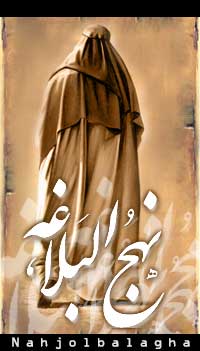 "What it the correct location and size of Allah ﷻ? Does Allah ﷻ stay on our heart? Did Allah ﷻ create the whole universe? Does Allah ﷻ stay everywhere?" - I was inquired these questions and attempted to answer each through one of the sermons of Hazrat Ali ibn Abi Talib (a.s) called "Creation of the Earth and Sky and birth of Adam,"[1] in which he philosophically expresses some divine facts about the existence of Allah ﷻ: What it the correct location and size of Allah ﷻ? Hazrat Ali (a.s) said “Praise is due to Allah whose worth cannot be described by speakers, whose bounties cannot be counted by calculators and whose claim (to obedience) cannot be satisfied by those who attempt to do so, whom the height of intellectual courage cannot appreciate, and the divings of understanding cannot reach; He for whose description no limit has been laid down, no eulogy exists, no time is ordained and no duration is fixed.” - No eulogy exists that could fully describe and praise Him just as Prophet Muhammad ﷺ expressed in his dua (supplication): “O Allah ﷻ, I cannot praise You enough, You are as You have praised yourself.”[2] The Prophet ﷺ would also make zikr (remembrance) of Allah ﷻ in these words: Subhan Allahi adada khalqihi meaning “Glory to Allah according to the number of His creation” which is a fact that in total His creation is so great in number that it cannot be counted! And he would say Subhaan Allahi midaada kalimaatihi meaning “Glory be to Allah according to the amount of His Words” which as per Quran (18:109) are never ending even if the oceans were ink! If His creation and words are never ending then how can we limit His Being to size and location? Such attempts to define Him in human terms would be meaningless in the light of Quran’s message: “Limitless is He is His glory, and sublimely exalted above anything that men may devise by way of definition.”[3] Does Allah stay everywhere? Does Allah stay on our heart? Hazrat Ali (a.s) said “Whoever asked in what is He, held that He is contained; and whoever asked on what is He held He is not on something else. He is a Being but not through phenomenon of coming into being. He exists but not from non-existence. He is with everything but not in physical nearness. He is different from everything but not in physical separation. He acts but without connotation of movements and instruments. He sees even when there is none to be looked at from among His creation. He is only One, such that there is none with whom He may keep company or whom He may miss in his absence.” - A hadith e Qudsi (sacred tradition) narrated by the Prophet ﷺ teaches us that Allah ﷻ said: “The heavens and the earth cannot contain Me but in the heart of a believer I enter like a guest.”[4] This tells us that Allah ﷻ stays inside our hearts just as someone whom we love dearly stays close to our hearts i.e. remains in our thoughts and concerns even though they may not be physically present. Despite Him being Al Alee ul Azeem[5] (The Highest and Greatest) He is very close: “We know whatever his (human’s) self-whispers within him. We are closer to him than his jugular vein.”[6] Allah ﷻ created opposites in everything while He is different from all creation in the sense that He is unique: “(He is) the Creator of the heavens and the earth: He has made for you pairs from among yourselves….there is nothing whatever like Him.”[7] Did Allah ﷻ create the whole universe? Hazrat Ali said “He initiated creation most initially and commenced it originally, without undergoing reflection, without making use of any experiment, without innovating any movement, and without experiencing any aspiration of mind. He allotted all things their times, put together their variations gave them their properties, and determined their features knowing them before creating them, realizing fully their limits and confines and appreciating their propensities and intricacies.” - Allah ﷻ created the entire creation and He continues to create: “who creates [everything], and thereupon forms it in accordance with what it is meant to be, and who determines the nature [of all that exists], and thereupon guides it [towards its fulfilment].”[8] Not only did He create, He also gave each creation its nature and guided it towards its functioning and lifestyle. He also determined their abilities and limitations. All His acts of creation does not at all include any thinking on His part, He does not depend on ideas, and He creates what is already in His knowledge: “Of course He is! He is the All Knowing Creator. When He wills something to be, His way is to say, “Be”- and it is!”[9] In fact, after creating also sustains them every day while Himself remains free of all dependency: “All those in the heavens and the earth are dependent on Him. Day in and day out He has something to bring about.”[10] References: [1] Nahjul Balagha - Sermon 1 Creation of Earth and Sky and the birth of Adam - Radi n.d. [2] Sunan An Nasai - Vol. 1, Book 1, Hadith 169 [3] Al Quran 6:100 – Asad Translation. [4] Ghazzali 1993 [5] Two of the 99 beautiful names of Allah ﷻ. [6] Al Quran 50:16 [7] Al Quran 42:11 [8] Al Quran 87:2–3 – Asad Translation. [9] Al Quran 36:81–82 – Asad Translation. [10] Al Quran 55:29 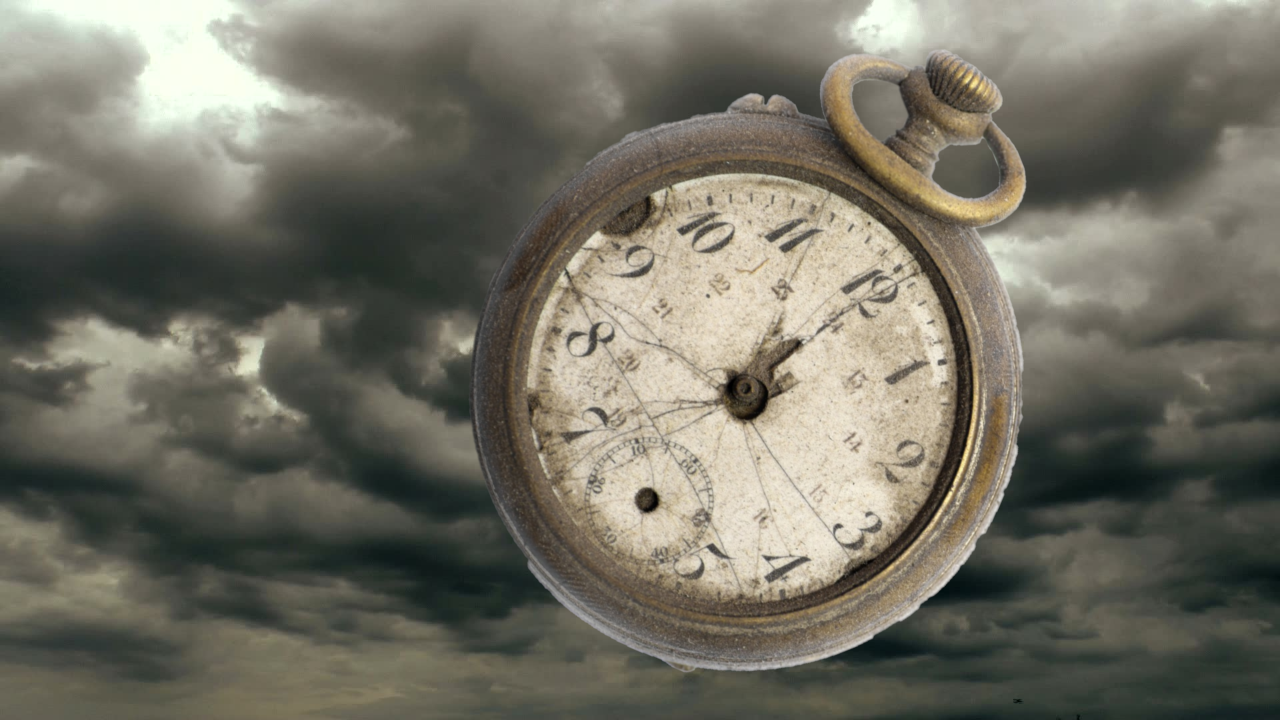 Ad-Dahr (Absolute Time) & reality of this world's time In Islam we have, the belief that time is Allah ﷻ. Prophet Muhammad ﷺ narrated from Allah ﷻ in a hadith e Qudsi: “Mankind abuses time and I am Ad Dahr (Absolute Time).”[1] The words ‘abuses time’ is reference to wasting lifetime with minute or no focus on our ultimate destination of hereafter. Ad Dahr is also one of the beautiful names of Allah ﷻ and means Absolute Time or Unlimited Time. It is this reason why every creation of Allah ﷻ, whether it is a star or an asteroid in space, a rock, tree, animal or even humans, all have times assigned to each of them from Allah ﷻ, the source of all time, the Absolute Time. The individual time assigned to each creation during their temporal existence on earth or in the space is the limited period called life. This limited period ends with the life of each. This temporary time is also mentioned in the Quran by the term Asr (temporary time) to distinguish it from Ad Dahr (Absolute Time): “CONSIDER the flight of time! Verily, man is bound to lose himself.”[2] This implies wasting ourselves by overtly investing all potential towards duniya (materialism) with little or no focus on hereafter. With technology, we have cut months of journey in to hours and hours work in to seconds attempting to make more time available yet we notice our inability to evade time and live more. Time continues to evade us just as the Prophet ﷺ predicted: “...time will pass quickly...”[3] “The hour will not come until time is constricted, year like a month, month like a week, week like the day, day like the hour, and hour like the flare of the fire.”[4] Time constriction is observable in our age when comparing our ability to write with that of famous 14th century scholar, jurist Ibn Qayyim Al-Jawziyya[5] author of Zaad al-Ma’ad, thousands of pages work written while traveling from Damascus to Makkah for Hajj, from memory only! Consider Fatima of Cordoba[6], Andalusian Sufi saint, despite 95 years old looked 14, so replenished was she with love of Allah ﷻ. This is because whose major concern is Ad-Dahr are able to achieve miracles, for them time becomes blessed and expanded. Such are glimpses of afterlife experience where time will cease to exist, becoming eternally blessed, aging and death will be experienced no more. References: [1] Sahih al-Bukhari 6181 [2] Al Quran 103:1–4 – Asad Translation. [3] Sahih al-Bukhari 1036 [4] Jami at-Tirmidhi Vol. 4, Book 10, Hadith 2332 [5] A 13th century CE Islamic jurisconsult, theologian, and spiritual writer from the Hanbali thought. [6] A 12th century Andalusian Sufi saint and shaykha (female spiritual guide) of the famous Hazrat Muhyiddin Ibn Arabi. |
Author
Zaid Shaw ArchivesCategories
All
|
Proudly powered by Weebly
 RSS Feed
RSS Feed